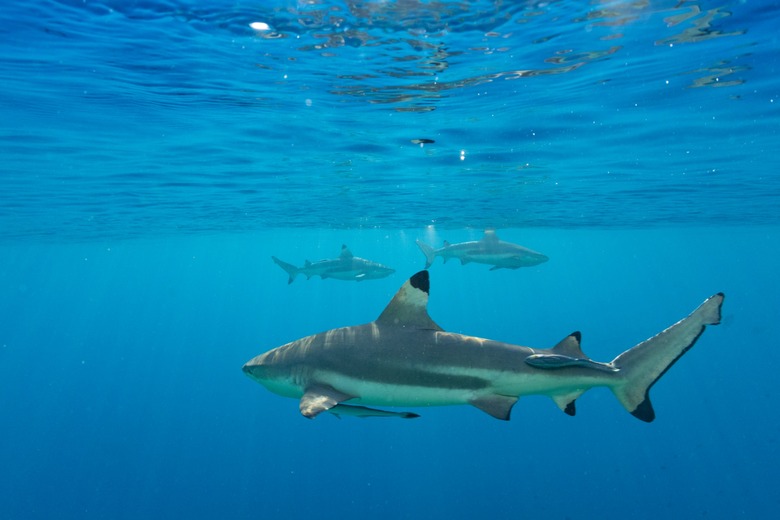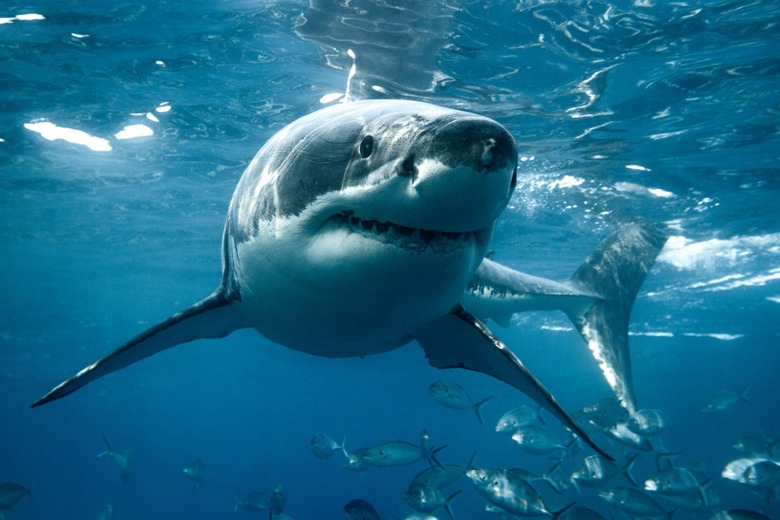Scientists Still Don't Know Why Sharks 'Freeze' When Turned Upside Down
Sharks are interesting creatures and among the most deadly lurking within the ocean. But what if I told you that sharks have a strange habit of freezing when you turn them upside down? That's right. Sharks, one of the big bads of old-school movies like Jaws, actually suffer from a freeze response very similar to rabbits, lizards, snakes, and possums.
The art of playing dead
This response is technically known as "tonic immobility." When it strikes, there's usually nothing that the animal affected by it can do. Although it might seem like possums are "playing dead" by choice, the animals actually have no control over when the immobility hits them. It's the same for sharks, too. That said, there is a bit more of a controlled method to activate the tonic immobility in sharks, as they only need to be turned upside down.
For some reason, when a shark is turned upside down, it just freezes. It doesn't move. It doesn't bite or fight back. It's actually one of the best ways for scientists to handle sharks safely when studying them. But why do they do it? And does it actually help them in any way?
Researchers posting to The Conversation recently released a study that dives deeper into this phenomenon. While it's a very well documented phenomenon, nobody has ever really known why it happens, especially out in the ocean where sharks need to rely on their speed and movement to feed. Because it's normally thought of as an anti-predator trait, there's no reason that sharks should share it. Yet they do.
Searching for a reason
The researchers tested 13 different species of sharks, rays, and even a chimaera, which is a relative of the shark typically known as a "ghost shark." Seven out of the 13 species froze when turned upside down, but six did not. The researchers then took this data and analyzed the findings compared to behaviors across hundreds of millions of years of shark family history.
Previously, researchers had come up with three possible reasons for why sharks freeze when turned upside down.
First, it's possible that it is indeed an anti-predatory strategy where the shark plays dead to avoid being eaten. Second, they say it could play a role in the reproductive habits of some sharks, with the male sharks inverting females during mating to reduce struggling. Finally, the "shut down" could be due to sensory overload and is thus a response to that.
However, the researchers behind this new study say that their findings don't support any of these theories. For starters, there's no benefit that freezing would give sharks when it comes to avoiding predators. Some modern predators like orcas could even use it against them. And since tonic immobility doesn't differ between sexes, the reproductive reasoning doesn't make sense, either. So, what about sensory overload? Well, the researchers say that theory is untested and unverified.
Instead, the researchers claim that the trait might just be what they refer to as an "evolutionary baggage." Based on their findings, they believe that the trait was part of ancient species but faded for many as they evolved. Yet some still kept the trait, and nobody is sure why it survived all these years of evolution. There's no reason that sharks should be taking advantage of this "defense," and in many cases, it could actually lead to their death.

